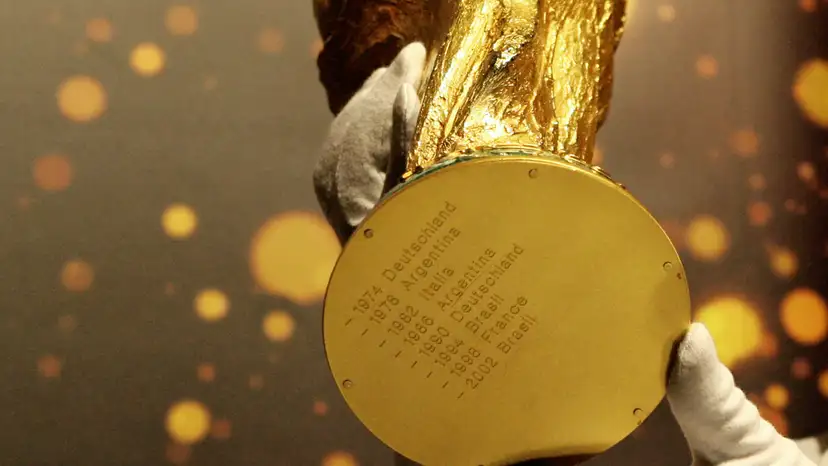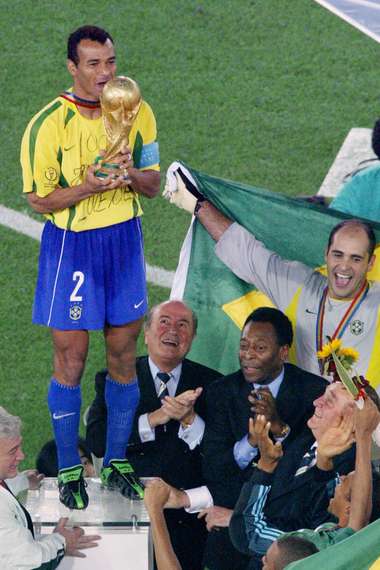
World Cup Winners: Which Country Has Lifted the FIFA Men’s World Cup the Most Times?
Discover which national teams have dominated the World Cup – and who is catching up fast
The FIFA World Cup is more than just a football tournament. Every four years, it becomes a global festival of sport, passion, and identity. Streets fall silent, fans gather in front of screens in every corner of the world, and millions watch history unfold. Since its first edition in Uruguay back in 1930, the World Cup has grown into the ultimate prize in international football, defining the careers of players and shaping the legacies of nations.
While the men’s World Cup has been played for nearly a century, the women’s version only came into existence in 1991. But for now, let’s focus on the men’s game and the question every football fan asks: which country has won the most FIFA Men’s World Cups?
Brazil – Kings of the World Cup
When it comes to World Cup winners, one country sits on top of the mountain: Brazil. The South American giants have lifted the trophy a record five times, cementing their reputation as the kings of the tournament.
Brazil’s first triumph came in 1958, when a 17-year-old boy named Pelé burst onto the scene in Sweden. His two goals in the final against the hosts announced the arrival of a superstar and a new era of Brazilian dominance. Four years later in Chile, Brazil successfully defended their crown, becoming the first team to win back-to-back World Cups.
Their third title, in 1970 in Mexico, is remembered as one of the greatest campaigns ever. Led by Pelé in his last World Cup, that Brazil side played football that was so fluid, so beautiful, that it became the gold standard of the “jogo bonito” – the beautiful game. Their reward was the Jules Rimet Trophy, which they were allowed to keep permanently after winning it three times.
After a long wait of 24 years, Brazil returned to glory in 1994, beating Italy in the first World Cup final ever decided by penalties. Then, in 2002, led by the brilliance of Ronaldo, Rivaldo, and Ronaldinho, Brazil secured their fifth crown in Japan and South Korea.
From Zico to Romário, Cafu to Kaká, Brazilian legends have carried their nation’s colours on the world stage. And Pelé, of course, remains unmatched as the only player in history to win three World Cups (1958, 1962, 1970).
Germany – Ruthless and efficient
Just behind Brazil are Germany, with four World Cup titles to their name. Their first came in 1954, the famous “Miracle of Bern,” when West Germany shocked the world by beating the mighty Hungary.
They would go on to dominate European football, adding further triumphs in 1974 and 1990. After reunification, the German machine struck again in 2014, beating Argentina in Brazil thanks to Mario Götze’s extra-time winner.
Germany’s consistency is legendary. They have reached more finals and semi-finals than any other country, underlining their ruthless efficiency and ability to perform under pressure.
Italy – Masters of resilience
Sharing four titles with Germany is Italy, another traditional powerhouse of world football. The Azzurri won their first two trophies in the 1930s, under coach Vittorio Pozzo, in an era when they became the first team to successfully defend their title (1934 and 1938).
Their third crown came in 1982, with Paolo Rossi firing them to victory in Spain. And their most recent triumph was in 2006, when Marcello Lippi’s men lifted the trophy in Berlin after a tense penalty shootout against France.
Italian football has always been built on defensive organisation, tactical discipline, and world-class goalkeepers. From Dino Zoff to Gianluigi Buffon, their heroes have embodied resilience on the biggest stage.
Argentina – Powered by legends
Few nations have a relationship with the World Cup as emotional as Argentina. With three titles (1978, 1986, and 2022), they have always been carried by iconic figures.
In 1978, on home soil, Mario Kempes was the star. In 1986, Diego Maradona produced one of the greatest individual tournaments in history, scoring the “Hand of God” and the “Goal of the Century” just minutes apart against England.
And in 2022, Lionel Messi finally fulfilled his destiny, guiding Argentina to their third World Cup in Qatar. It was a fairytale ending for a player many consider the greatest of all time.
France – A new powerhouse
France have lifted the trophy twice, first in 1998 on home soil, when Zinedine Zidane’s brilliance led them past Brazil in the final, and then in 2018, when a new generation of stars – Kylian Mbappé, Antoine Griezmann, and Paul Pogba – announced themselves to the world in Russia.
With the talent currently coming through their system, Les Bleus look capable of adding more titles in the years to come.
Uruguay – The original champions
Often overlooked, Uruguay remain giants of history. They won the very first World Cup in 1930 as hosts, and again in 1950, when they stunned Brazil in the Maracanã in one of the most famous upsets in football history – the “Maracanazo.”
Though they haven’t lifted the trophy since, Uruguay’s two stars remain proudly above their crest, reminding the world of their role as pioneers of the tournament.
Which continent dominates the World Cup?
If we shift the focus from countries to continents, the numbers reveal an interesting balance. Europe leads the way with 12 World Cup victories, shared between five nations: Italy, Germany, England, France, and Spain.
South America follows closely with 10 titles, thanks to Brazil, Argentina, and Uruguay. Between them, these two continents have shared every single World Cup to date. Africa, Asia, and North America, meanwhile, are still chasing their first taste of glory.
Who could be next?
Looking ahead, the race to catch Brazil is still alive. Germany and Italy sit one behind with four each, and both will be eager to add a fifth. Argentina, buoyed by Messi’s legacy and new stars like Julián Álvarez, could also close the gap further. France, with their golden generation, are another side with every chance of becoming the next dynasty.
And while no team outside Europe or South America has yet lifted the trophy, football’s globalisation suggests it may only be a matter of time before Asia, Africa, or North America makes history.
Conclusion: The World Cup remains football’s ultimate prize
From Pelé to Maradona, Zidane to Messi, the World Cup has created legends and unforgettable moments. Brazil still wear the crown with their five triumphs, but the chase is on. Germany and Italy remain within touching distance, Argentina are resurgent, and France look built for the future.
What is certain is that the FIFA Men’s World Cup will continue to deliver stories of drama, joy, and heartbreak – and fans across the globe will be counting the days until the next chapter begins.









































































There are no comments yet. Be the first to comment!